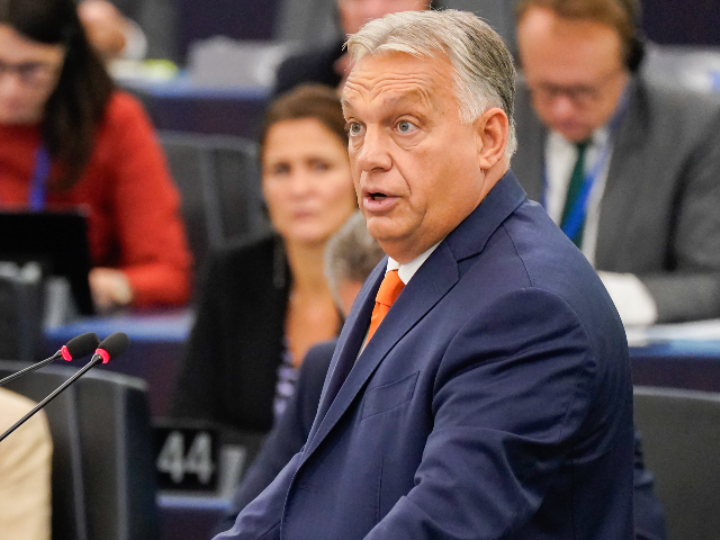Dr. Rinus van Schendelen, professor in Political Science at Erasmus University Rotterdam; has rewritten his bestselling handbook about EU-lobbying “Machiavelli in Brussels”.
EBR: What is new in 'More Machiavelli in Brussels’?
Two-thirds of the text of this new edition has been rewritten. Of course, every book about the current EU is outdated within five years, which indicates how dynamic the EU playing-field is! The new Lisbon Treaty is only one major change factor. There is an enormous amount of new material on the subject of EU lobbying, or, to put it better, the modern management of public affairs (PA) of which 'lobbying' takes at the most ten percent of time: New field research, case-studies, questionnaires and analytical studies have been published. Following the book's original purpose, all these new facts and insights have been incorporated, to help the practitioner who has limited time to read all the basic materials.
EBR: What is your own role in the field of PA and lobbying?
My main role is that of an academic who is interested in the real working of the EU decision-making process and how this can be influenced in legitimate ways. My first books and articles on the matter date from the mid-seventies. Field-research and case-studies are my favourites. In addition, I have always advised lobby groups on their specific EU interests regarding 'how to lobby more efficiently and effectively at EU level', which gives detailed information to me and appreciated help to them. I have personal networks with both academic colleagues and PA practitioners, as the former often have general knowledge and the latter detailed information, I try to combine these two assets into 'useful knowledge' as exemplified by 'More Machiavelli in Brussels'.
EBR: How important is the new Lisbon Treaty for PA or lobbying?
Before the new treaty the European Parliament (EP) and the European Council had to decide already in co-decision upon many legislative proposals of the European Commission, but ‘Lisbon’ has changed the balance of power from the Council to the EP. The EP got codecision power over about 40 policy domains, which makes the Council less powerful. Besides this, the Council must take its decision more often by qualified majority instead of unanimity. Trying to influence the outcomes of this legislation through national capitals has become, by consequence, less effective now. National government can be overruled in the Council and thereafter the Council has to share its final say with the EP. Other important changes regard the European Court (more competences and capacity), the Commission for its delegated and implementing powers and the national parliaments who can by one-third majority stop certain Commission proposals.
EBR: What does that all mean to intelligent lobbyists?
Lobbyists are not in the business of 'formal power' but of 'influence'. For them the formal powers and procedures, set by any new treaty, only partially determine 'how it really works'. The already existing informal ‘trialogue’ between Commission, EP and Council on dossiers is now intensified and even extended with an informal dialogue between Commission and EP only. These meetings the lobbyists should monitor and target for their delivery of support or opposition more intensely. For the purpose of opposition (‘negative lobbying’), they can try to mobilise national parliaments. The new arrangements for the Commission's delegated and implementing powers give more opportunities to them as well. It always surprises me that only few lobby groups are familiar with this 'backstage' area of the Commission, which is extensively described in the book.
EBR: Are, in your opinion, the EESC and the COR of any importance for lobbyists?
Viewed from the perspective of formal powers the European Economic and Social Committee (EESC) and the Committee of the Regions (COR) are not so important. But, again, lobbyists are in the business of influence and, as the book makes clear, 'all little bits can make the difference between winning and losing'. The two bodies are anyhow relevant agenda-builders, as the Commission is inclined to adopt a common position from each of them for its next year's working agenda. The people inside these bodies are also often influential in their domestic organisations of employers, trade unions and consumer groups, respectively regional and local governments and capable of creating a Europe-wide 'concerted action'. In that way the EESC and the COR act like institutionalised lobby platforms.
EBR: Are lobbyists suffering from the financial crisis?
In policy sense not at all! The financial sector was until the crisis, the main left-over from Jacques Delors' 'White Book 1992' and is now going to be opened. This will bring a lot of lobby work to all stakeholders on financial services, whether they are in favour or against this new Europeanisation.
In the limited sense of their PA budget, the financial crisis has on average diminished the financial resources for PA in 2009, but new figures indicate a small increase to the 2008 level, which was then considered strong. Among the commercial lobbyists the competition has clearly increased, which can only be welcomed as this usually results in more value for the same money. This would perfectly fit with the book's leading emphasis on 'quality lobbying', which combines a strong ambition to win, a studious preparation of any match and a prudent style of working. These are the qualities for which Niccolò Machiavelli of the book’s title stands as the ultimate role model.
Rinus van Schendelen : More Machiavelli in Brussels. The Art of Lobbying the EU.
Amsterdam University Press, Amsterdam 2010 ( www.aup.nl ).
ISBN 978 90 8964 147 2; e-ISBN 978 90 4851 079 5; NUGI 654






